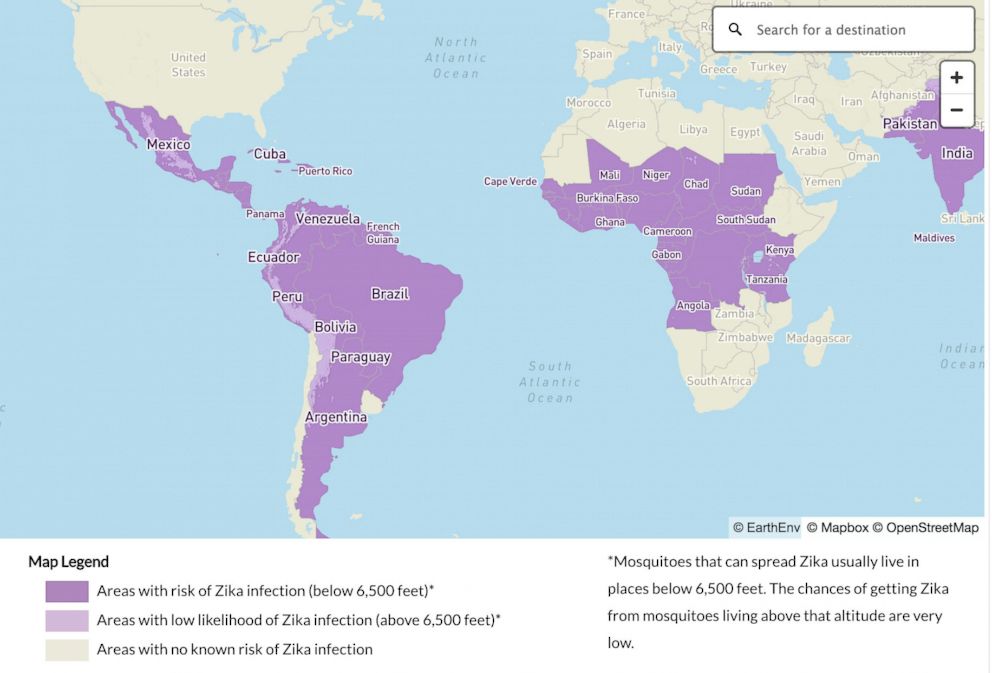Does pregnant Meghan Markle need to worry about Zika? Here's what the CDC recommends
The Duke and Duchess of Sussex revealed the pregnancy before their foreign tour.
Meghan Markle and Prince Harry announced their pregnancy this morning as they kicked off a 16-day tour that includes stops in Australia, New Zealand, Fiji and Tonga.
But the trip is raising some concerns as doctors advise that women like Meghan, who is 12 weeks pregnant, should not travel to areas that pose risks of Zika infection.
"In Obstetrics, my advice is always to err on the side of caution," Dr. Jennifer Ashton, ABC News' chief health and medical correspondent, said in a statement to "Good Morning America." "But many decisions that arise during pregnancy are for the pregnant woman, her partner and her OB or midwife to make."

The Zika virus primarily spreads through infected mosquitoes, according to the Centers for Disease Control and Prevention. Zika can also be transmitted through sex without a condom with someone who was infected by the virus, even if that person does not show symptoms of Zika. There is currently no vaccine to prevent or medicine to treat Zika, and it can be passed from a pregnant woman to her fetus. Infection during pregnancy can cause a birth defect called microcephaly and other severe fetal brain defects, according to the CDC.


Along with other precautions, the CDC recommends against pregnant women traveling to places with documented or likely Zika virus transmission.
Here's more CDC recommendations for protecting yourself against Zika during pregnancy.
What to do if you're travelling or living in an area with risk of Zika
Take steps to prevent mosquito bites.
Take steps to prevent getting Zika through sex (oral, vaginal, or anal) by using condoms from start to finish every time you have sex or by not having sex during your entire pregnancy.
What to do after you travel
Talk to a doctor or other healthcare provider after travel to an area with risk of Zika.
If you develop a fever with a rash, headache, joint pain, red eyes, or muscle pain talk, the CDC says to talk to your doctor immediately and tell him or her about your travel.
Take steps to prevent mosquito bites for three weeks after returning.
Continue taking steps to prevent passing Zika through sex by using condoms, or abstaining from sex.

When to get tested for Zika
The CDC recommends getting tested for Zika if you've traveled to an area with risk of Zika or had sex with a partner who lived in or traveled to one of those areas.
You can search for the CDC's travel recommendations for Zika through their interactive map, which lets you search for location-specific Zika info.






